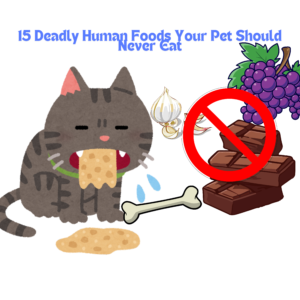10 Human Foods Cats Can Eat Safely

Cats are known for their finicky eating habits, often preferring their specialized cat food. However, many cat owners wonder if it’s safe to share some of their own food with their feline friends. While it’s essential to avoid foods that are toxic to cats, such as chocolate, onions, and garlic, there are several human foods that cats can safely enjoy in moderation. Here are ten such foods:
1. Cooked Chicken
Cooked chicken is a great source of lean protein for cats. Make sure the chicken is plain, without any seasoning, garlic, or onions, as these can be harmful. Remove all bones to prevent choking or digestive issues.
2. Cooked Fish
Fish, particularly salmon and tuna, can be a tasty treat for cats. It’s best to offer it cooked to eliminate any parasites. Ensure that the fish is free from bones and seasoning.
3. Eggs
Eggs are rich in protein and essential amino acids. Serve them cooked to avoid the risk of salmonella. Scrambled or boiled eggs can make an occasional, nutritious treat.
4. Pumpkin
Pumpkin is high in fiber and can aid in digestion. It’s especially helpful for cats with constipation or diarrhea. Offer plain, canned pumpkin without any added sugars or spices
5. Blueberries
Blueberries are safe for cats and packed with antioxidants. They can be offered fresh or frozen as a crunchy snack. Some cats might enjoy the texture and taste of these tiny berries.
6. Cheese
Most cats can tolerate small amounts of cheese, although some may be lactose intolerant. Hard cheeses like cheddar or Swiss are better choices. Always monitor for any signs of digestive upset.
7. Carrots
Cooked carrots can be a healthy snack for cats. They are rich in vitamins and fiber. Make sure they are soft to prevent choking and serve them plain.
8. Rice
Plain, cooked rice is gentle on a cat’s stomach and can be useful if your cat has digestive issues. It should be served without any seasoning or sauces.
9. Apples
Cats can eat apples as long as they are free of seeds and core, which contain cyanide. Cut the apple into small, manageable pieces and serve in moderation.
10. Plain Yogurt
Plain, unsweetened yogurt can be a good source of probiotics and calcium. Some cats enjoy the creamy texture. Ensure that the yogurt does not contain artificial sweeteners, particularly xylitol, which is toxic to cats.
Tips for Feeding Human Food to Cats :
Moderation is Key:
Treat these foods as occasional snacks rather than a regular part of their diet. Overfeeding can lead to nutritional imbalances.
Avoid Seasonings:
Many seasonings and additives that are safe for humans can be harmful to cats. Always serve plain, unseasoned food.
Monitor for Allergies:
Just like humans, cats can have food allergies. Introduce new foods slowly and watch for any signs of digestive upset or allergic reactions, such as itching, vomiting, or diarrhea.
Consult Your Vet:
Before making any significant changes to your cat’s diet, it’s wise to consult your veterinarian. They can provide guidance based on your cat’s specific health needs and conditions.
Conclusion
While commercial cat food is formulated to meet all of a cat’s nutritional needs, sharing safe human foods can be a fun way to bond with your pet and provide them with occasional treats. Always prioritize your cat’s health and well-being by choosing safe, nutritious options and avoiding any potentially harmful foods.

No Comments